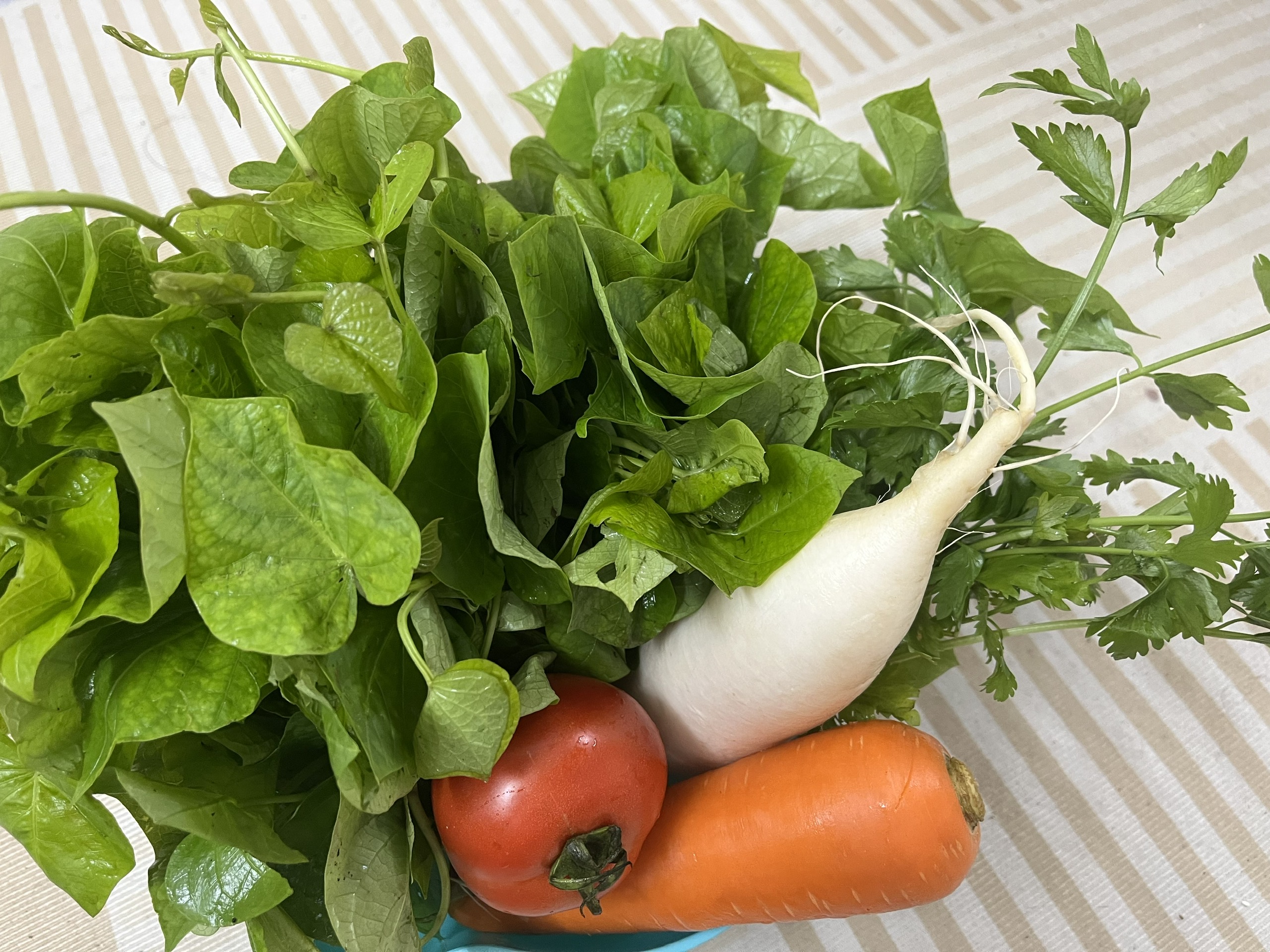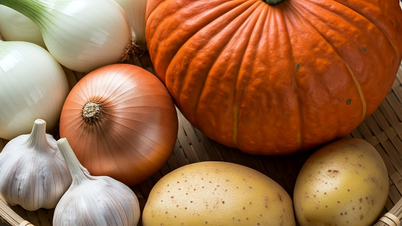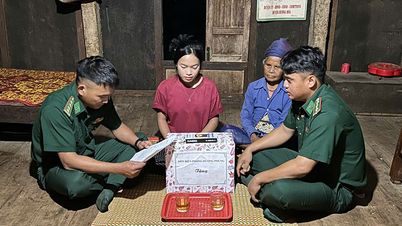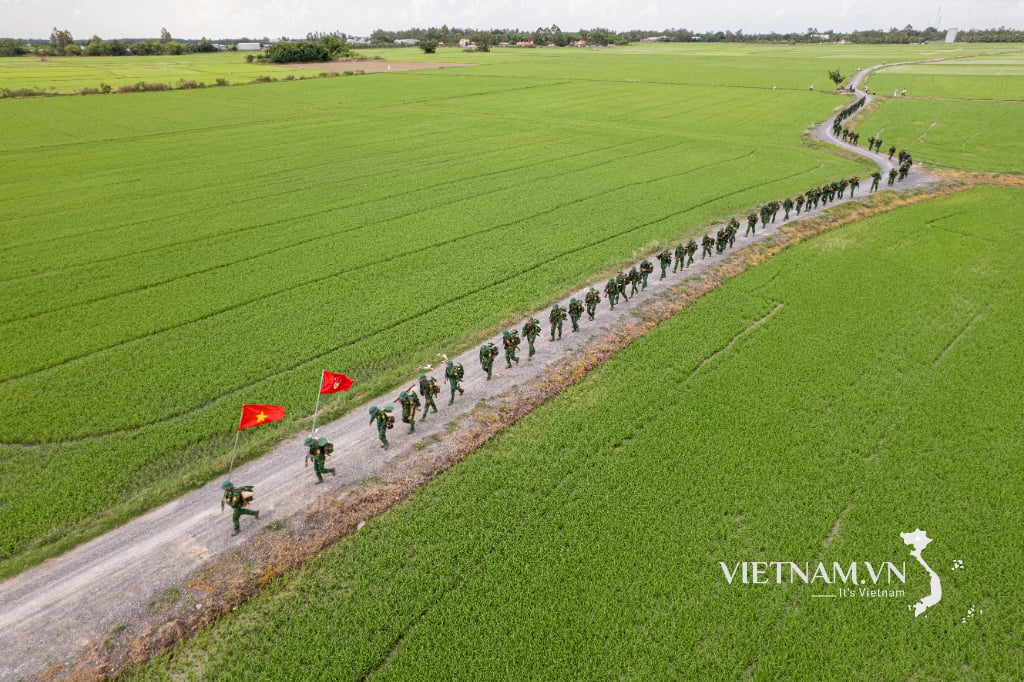Faced with the reality of storms and floods causing long-term flooding, the Food Safety Department ( Ministry of Health ) provides instructions on preserving food groups at home.
Fresh food
Fresh foods can be refrigerated for 3-5 days. Therefore, families should buy pork, beef, chicken in advance, then process and store in the freezer. When needed, they can be defrosted and processed as usual. Vegetables and fruits should also be selected that can be stored for a long time.
In addition to meat, you should buy 3-5 types of green vegetables such as mustard greens, spinach, Malabar spinach, squash, and pumpkin and keep them in a dry place. In cool weather on rainy days, green vegetables can be kept outside the refrigerator for 2 days and in the refrigerator for 4-5 days. Vegetables such as squash, pumpkin, potatoes, and carrots can be kept outside for 3-5 days.

To ensure food safety during the rainy season, foods need to be properly stored in the refrigerator.
Eggs, if stored properly, can last up to 15 - 20 days. Eggs should be kept in the main compartment of the refrigerator to maintain a stable temperature, keeping eggs fresh longer. In addition, eggs should be kept in cartons to reduce the risk of breakage.
Dry food, instant
You need to check your rice, salt, fish sauce, soy sauce, and cooking oil. Some dry foods that you should have on hand during a storm include: dried fish, instant noodles, canned foods such as canned meat, canned fish, instant sausages, dried pork floss, and bread, cakes, and condensed milk.
If there is information about a big and long storm, you should prepare more bread, cakes and condensed milk in case the worst happens and you cannot cook, you still have instant food.
For canned foods, pay attention to checking the expiration date and arrange a reasonable diet for the family.
How to store food
Need to check the refrigerator temperature. Refrigerators help extend the shelf life of food for a short time, but the temperature in the refrigerator must be adjusted to an appropriate level. If the refrigerator is not cold enough, it will create a very favorable environment for harmful bacteria to grow.
The ideal refrigerator temperature is below 40 degrees F (about 5 degrees C). At this temperature, foods are safer to eat.
During a power outage Refrigerator and freezer doors must be kept completely closed to maintain cold temperatures. A fully loaded freezer, if the door is closed tightly, will stay cold for about 48 hours. A half-filled freezer will stay cold for 24 hours.
Refrigerators only retain cold for about 4 hours after a power outage. Spoiled food should be thrown away after 4 hours. Although these do not emit a foul odor, they can still contain bacteria that can make you and your family sick, especially those with weakened immune systems such as children, pregnant women, and the elderly.
The following foods should be noted and discarded: cooked or raw meat, fish, eggs, milk and dairy products. At the same time, leftover foods from previous days, such as: tuna, rice, pasta, salad... should also be thrown away.
When the power is restored, check the refrigerator. If you have a thermometer in the freezer and the temperature on the thermometer is still below 4 - 5 degrees Celsius, the food is still safe to eat. If you are more careful, you can check each package of food. If it is still covered with ice or below 4 - 5 degrees Celsius, you can continue to keep these packages of food cold or cook them.
Spoiled food should be discarded from the refrigerator and freezer and the refrigerator cleaned. When the temperature in the refrigerator drops below 4 - 5 degrees Celsius, new food can be put in the refrigerator.
The Food Safety Department notes that storms often come with floods and can contaminate water sources. When your home is flooded, you should boil water and let it cool before drinking, or drink bottled water during this time.
Families should have measures to store clean water in tanks, barrels, buckets, basins, and other suitable items, in case of water cut-off.
Also, have plenty of bottled water, bottled fruit juice and canned milk on hand.
All are kept in a dry place so that they can be easily used when needed. Do not leave them in places that are prone to flooding in the house.
For one person in 1 day there should be at least 3 liters of water, or 45 liters of water for a family of 4 people.
You should store drinking water for at least 3 days in case of emergency, when you cannot boil water.
Source: https://thanhnien.vn/thuc-pham-an-toan-bao-lau-khi-bao-quan-trong-tu-lanh-ngay-mua-lu-185240912105641758.htm







































































































Comment (0)